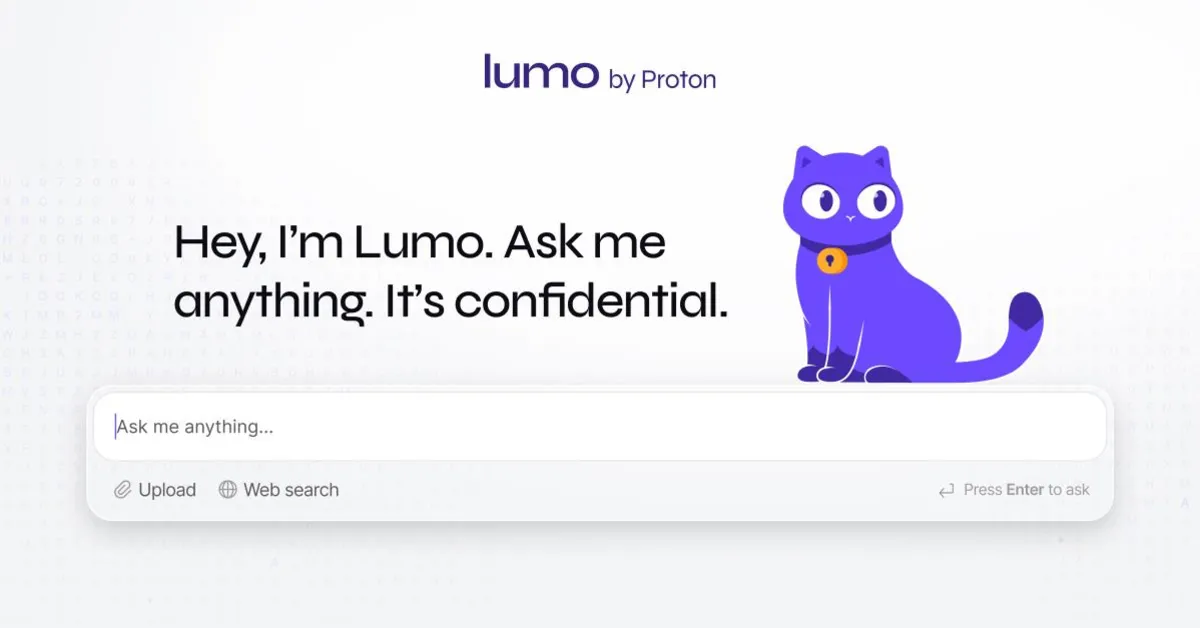
Proton, the innovative company renowned for its encrypted email service Proton Mail, has unveiled a groundbreaking AI assistant named Lumo. This advanced chatbot is designed with a primary focus on preserving user privacy while offering a range of functionalities such as document summarization, email writing, and code generation. One of the standout features of Lumo is that it stores data locally on users' devices, ensuring that sensitive information remains private.
Proton emphasizes its commitment to user security through the implementation of zero-access encryption. This robust encryption method ensures that users possess the only key needed to access their content. By utilizing this advanced encryption technology, Proton guarantees that neither third parties nor even the company itself can access the stored information. This proactive approach prevents the sharing of user data with advertisers or government entities, further solidifying Proton's dedication to user privacy.
While Lumo includes a web search capability, Proton has opted to turn this feature off by default to maximize user privacy. If users choose to enable web searching, Lumo utilizes privacy-friendly search engines to fetch answers. Additionally, Lumo can analyze uploaded files but does not retain any of the processed information, ensuring that user data remains confidential. Users can also link their Proton Drive files to Lumo, which will stay end-to-end encrypted during interactions with the chatbot.
Proton positions Lumo as a substantial alternative to AI solutions developed by major corporations such as OpenAI, Meta, Google, and Microsoft. Andy Yen, the CEO and founder of Proton, articulates the company’s vision: “Big Tech is using AI to supercharge the collection of sensitive user data to accelerate the world’s transition to surveillance capitalism. Our vision for Lumo is AI that puts people ahead of profits.” This statement underscores Proton's commitment to ethical AI practices focused on protecting user rights.
Lumo is powered by a variety of open-source large language models hosted on Proton's servers in Europe, including Mistral’s Nemo, Mistral Small 3, Nvidia’s OpenHands 32B, and the Allen Institute for AI’s OLMO 2 32B model. Depending on the nature of the query, Lumo intelligently selects the most suitable model to provide accurate and efficient responses. For example, programming inquiries are expertly handled by the OpenHands model, which specializes in coding tasks.
Users can easily access Lumo by visiting lumo.proton.me or downloading the Lumo app, available for both iOS and Android devices. However, users without an account can only pose a limited number of questions each week and do not have access to their chat histories. For those with a free account, Lumo offers an encrypted chat history, the ability to upload small files, and the option to favorite a limited number of chats. Additionally, the Lumo Plus plan, priced at $12.99 per month, allows for unlimited chats, an extended encrypted chat history, unlimited favorites, and the capability to upload larger files.
With the launch of Lumo, Proton continues to lead the way in user privacy within the realm of AI technology. By prioritizing security and ethical AI practices, Proton offers users a reliable and private alternative to mainstream AI assistants. As the conversation around data privacy intensifies, Lumo stands out as a tool designed not just for functionality, but also for user empowerment.